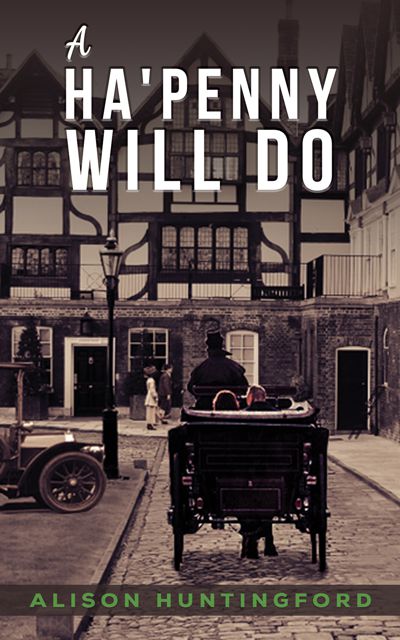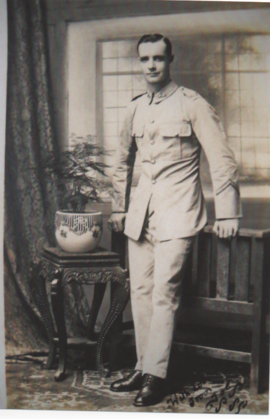
Blurb
Kate, a homesick, lonely Irish immigrant, dreams of being a writer. After difficult times in Liverpool, she comes to London looking for a better life. Hoping to escape from a life of domestic service into marriage and motherhood, she meets charming rogue, William Duffield. Despite her worries about his uncertain temperament, she becomes involved with him. Will it be an escape or a prison?
Fred is a restless elder son, devoted to his mother yet locked in a tempestuous relationship with his father. War intervenes and he secretly signs up to serve abroad. Is his bad reputation deserved? What will become of him?
Joe, too young to sign up for WW1, is left to endure the hardships of war on the home front and deal with his own guilt at not being able to serve. He starts an innocent friendship with his sister-in-law which sustains him through hard times. Will he survive the bombs, the riots, the rationing and find true love in the end?
These are their intertwined and interlocking stories told through the medium of diaries, letters and personal recollections, based on the author’s family history covering the period of 1879–1920. The truth is never plain and rarely simple.
WORLD WAR 1 ON THE HOME FRONT
One of the main characters in my novel ‘A Ha’penny Will Do’ is Joe Duffield. Joe was the son of Kate and William Duffield and was my Grandad. As a child I never asked him about his own family, which I now very much regret. But through my extensive research I have found out a great deal. He was born in 1900 and therefore lived through the First World War though he was too young to take part. This inspired me to find out more and this is what I discovered.

In the weeks that followed the declaration of war, enthusiasm was high to start with, but then reality started to kick in. Prices of food rose and lists of casualties emerged, and the promised victory suddenly didn’t seem so certain anymore. By the end of August they’d heard that the British troops were having to retreat bit by bit from Mons, fighting bitterly all the way. The Times newspaper reported that there were: ‘terrible losses’ and that the British Expeditionary Force now consisted of: ‘broken bits of many regiments.’
September came and went, and now families were beginning to feel the pinch at home. The Defence of the Realm Act, issued immediately the war started, had given new powers to the government, allowing higher taxes to be imposed to pay for the conflict. The cost of essentials like potatoes, milk and butter all doubled. Most landlords also put up the rents.
By October that year things were looking quite bleak. Big Ben was silenced and the streetlights were dimmed; everyone was scared of the prospect of invasion. Imaginations ran riot and people thought they saw German spies around every corner. The public heard the war was going badly abroad and dreaded the prospect of defeat.
What’s more there were rumours of German atrocities taking place in Belgium. From what the newspapers said, it was only ‘divine intervention’ from the angels, or possibly St George, which had rescued the troops at Mons. Both sides were having to dig in for the winter. Trenches were created and everyone could tell this was not going to be a ‘short term’ war.
In 1914 there were many German civilians living in Britain. The Aliens Act had come into force in August that year and they were told they had to register their nationality.
Unfortunately, anti-German feelings were running high. Bricks were thrown through windows of businesses that appeared to be German and filthy words were scrawled over shop doors. But it was to get much worse.
It was provoked by the sinking of the Lusitania – a disaster second only to the loss of the Titanic. Except that this was not just a tragic accident, but an act of war.
On the 7th May 1915 a German U boat torpedoed the luxury liner as it passed by the south coast of Ireland. It sank in a matter of minutes, leading to a terrible loss of life. Over 1000 people died, all civilians, including many women and children. Bodies washed up onto the shores of Cobh, near Cork, for days afterwards. The newspapers were full of it the next day, painting Germany as the very devil himself. It didn’t matter that the enemy had in fact sent out a warning about it beforehand, or that their country was being blockaded and starved out by British ships. None of this was ever mentioned at the time.
It was an awful tragedy and people could talk of nothing else. The individual stories of personal loss and suffering were heart-breaking. Little babies and children were swept away by the mighty waves, never to be seen again. Public anger was simmering against anyone remotely connected with Germany. It all came to a boiling point soon enough.
People went to work on Monday 12th May as normal, and there seemed no reason for alarm. That night, however, things changed beyond all belief.
Anti-German rioting broke out, like a wildfire spreading through the boroughs of London. Angry crowds stormed through the streets, destroying property and terrorising innocent German civilians.
As Joe says: “I turned up for work the next morning to see the bakery virtually destroyed and the other staff standing around, gazing at the devastation. Horrified, I asked Betsy what had happened.
“It was awful,” she told me. “The mob done chased our poor Mr Muller right into his house and then threw him out that there window!”
“Me and John both came out and tried to stop it but there was too many of ‘em for us and they wouldn’t listen. Then they ripped off most of his clothes and left him in the street. Half naked he was! His missus came out and tried to cover him up but they turned on her too. Fair knocked around they both were.”
“Not only that,” added Betsy’s husband, John, “but then the swines passed all their furniture out the windows and the crowd took it all away. Every stick! There ain’t nothin’ left in the house or the bakery. Even the baking pans have gone and all the flour’s spilt. It’s a crying shame!”
We entered what was left of the bakery and it was quite true. Everything was either taken or destroyed.”
It was nearly Christmas and things weren’t getting any better. There were fears that Britain could be invaded by Germany at any moment. People were panic buying, which was causing food shortages in the shops.
On December 17th the public was shocked to the core to hear about the shelling of Scarborough, Whitby and Hartlepool, the day before. The German Navy had fired from ships just off the coast, killing over 100 civilians, destroying properties and sending people fleeing for their lives. This spread panic and fear amongst the whole country. Never before, had British civilians been targeted in war-time. It was beyond belief. The world had changed, and not for the better.
After that and a few other incidents around the ports of Britain, everyone was nervous about aerial attack. But they all knew the Kaiser was related to their own royal family and wasn’t likely to allow any bombings on London.
One night however, everything changed. People awoke to see the sky alive with the light of fires all over London. There were shouts and screams and the sound of explosions.
Witnesses afterwards described having seen a giant airship, very high up in the clouds, barely visible except when the moon came out briefly. It was, they later learned, a German Zeppelin.
As Joe says: “We finally emerged, stiff and cramped, into the slow sun rise of the new day. We were intact, but several houses to the east of us had been destroyed. Lives had been taken and people injured. London was a sadder, wiser place that morning, and nowhere felt safe anymore.”
There were no air raid shelters at that time, but many Londoners sheltered down in the underground stations. The only trouble was they often didn’t get much warning, so it depended where you were at the time. The only air raid warning at that time was a policeman riding around on a bike with a sign saying TAKE COVER!
The attacks on London continued throughout the war and though few people remember it now, it was certainly a terrifying enough ordeal. It may have been a slight incident compared with the Blitz of 1939-45 but to those who lived through it, it was never to be forgotten. It was such a shock to be a target. Before this, war had been a distant overseas thing, and never on the home front. This brought everyone into it together. Those who weren’t actually in the trenches were fighting their own battles in their living rooms.
Did you realise they had rationing in the First World War? No? Well they did, although it didn’t start until 1918, it’s true. Food had been getting scarcer as the war progressed. Cargo ships were being targeted by German submarines and many never made it here. Long queues for food outside shops became a regular sight, and people were often hungry. The local park was dug up and converted to allotments, and people started to ‘grow their own’. Women began to work in factories to replace the men who had gone to war, doing vital work for the war effort. There were mostly youngsters, women and old men working there, as men of service age had either signed up or been conscripted, as time went on. Often however, these workers had to deal with highly toxic chemicals which turned their skin yellow. After the war, women were expected to return to the ‘home’ again, but roles had changed and would never be quite the same again, leading eventually to women’s rights.
Amazon UK: https://www.amazon.co.uk/Hapenny-Will-Do-Alison-Huntingford-ebook/dp/B09QH4XCQF
Amazon US: https://www.amazon.com/Hapenny-Will-Do-Alison-Huntingford-ebook/dp/B09QH4XCQF
Amazon CA: https://www.amazon.ca/Hapenny-Will-Do-Alison-Huntingford-ebook/dp/B09QH4XCQF
Amazon AU: https://www.amazon.com.au/Hapenny-Will-Do-Alison-Huntingford-ebook/dp/B09QH4XCQF
Barnes and Noble: https://www.barnesandnoble.com/w/a-hapenny-will-do-alison-huntingford/1140863962
Waterstones: https://www.waterstones.com/book/a-hapenny-will-do/alison-huntingford/9781398408135
Meet Alison Huntingford

Alison Huntingford has a degree in humanities with literature, and has always enjoyed reading, especially, the great writers of the 19th century.
She is an only child of two only children and so has always felt a distinct lack of family. This has inspired her to research her family history and most of her writing is based on this. Her debut novel, The Glass Bulldog, was published in 2019, and was nominated for the Walter Scott Prize for historical fiction. This is her second full length novel, although, she has also written several short stories.
In her spare time, she enjoys spending time with her husband and their pets, listening to music, going to the cinema, and gardening. She lives in Devon, on the edge of Dartmoor.
Connect with Alison
Website: https://alisonhuntingford.com
Twitter: https://twitter.com/ahuntingford9
Facebook: https://www.facebook.com/ahuntingford9/
LinkedIn: https://www.linkedin.com/in/alison-huntingford-792a5829/
Instagram: https://www.instagram.com/ahuntingford9/
Amazon Author Page: https://www.amazon.co.uk/kindle-dbs/entity/author/B09D8JDJ49
Goodreads: https://www.goodreads.com/author/show/19175307.Alison_Huntingford